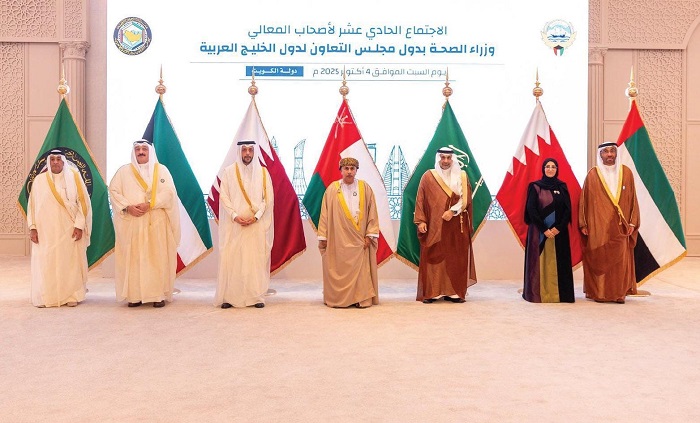
Kuwait: Dr. Hilal Ali Al Sabti, Minister of Health, said that the recommendations made at the Health Ministers’ Committee meeting in Kuwait will contribute to building more efficient, resilient, and sustainable health systems in the Gulf Cooperation Council (GCC).
The Sultanate of Oman’s delegation was headed by Dr. Hilal Ali Al Sabti, Minister of Health, who emphasised that this meeting represents a new milestone in strengthening cooperation in the health sector among GCC countries.
The Sultanate of Oman participated on Saturday in the 11th meeting of the Health Ministers’ Committee with the participation of the Ministers of Health of the GCC. The meeting discussed ways to enhance cooperation and joint integration, and advance the Gulf health system, thus contributing to improving the quality of life and enhancing health security in the GCC countries.
The meeting discussed the Gulf Strategy for Combating Drugs (2025-2026), which represents a collective response to a cross-border challenge that requires integrated efforts to protect youth and safeguard the future of nations, in addition to the Gulf Plan for Public Health (2026-2030), which constitutes an integrated roadmap based on prevention, enhances integration, and enshrines the concept of health.
In his speech, Jassim Mohamed Al Budaiwi, Secretary-General of the Gulf Cooperation Council, praised the high-level meeting organised by the Sultanate of Oman on the sidelines of the 80th session of the United Nations General Assembly on non-communicable diseases in New York.
The meeting embodied Oman’s deep commitment to enhancing global health security, highlighting the advanced status of GCC countries in international health forums, and their active role in leading international efforts to address contemporary health challenges.
He pointed out that the meeting represented an exemplary model for international cooperation, the exchange of best practices, and accelerating progress towards achieving the Sustainable Development Goals in the health sector.
He emphasised that the Gulf health system has achieved significant progress in recent years, through the development of its health systems, the training of national cadres to achieve the highest levels of competence, and the strengthening of their capabilities in disease prevention and control, in addition to expanding the scope of initiatives aimed at improving the quality of medical services, thus exceeding regional and global averages in health indicators.
He added that the GCC countries are confidently moving towards completing the Gulf health integration process by unifying common health standards and protocols and building strategic partnerships with international organisations and leading countries in the health sector.
He pointed out that the GCC countries are working, in cooperation with the World Health Organization, on a project to adopt the Healthy Cities Programme, which aims to achieve the highest levels of health and well-being in sustainable and socially effective cities.
The Secretary-General emphasised that health represents the cornerstone of comprehensive development and the most important investment in the future of individuals and society, affirming the GCC states’ commitment to transforming this principle into a tangible reality reflected in the lives of Gulf citizens and residents. -With ONA inputs